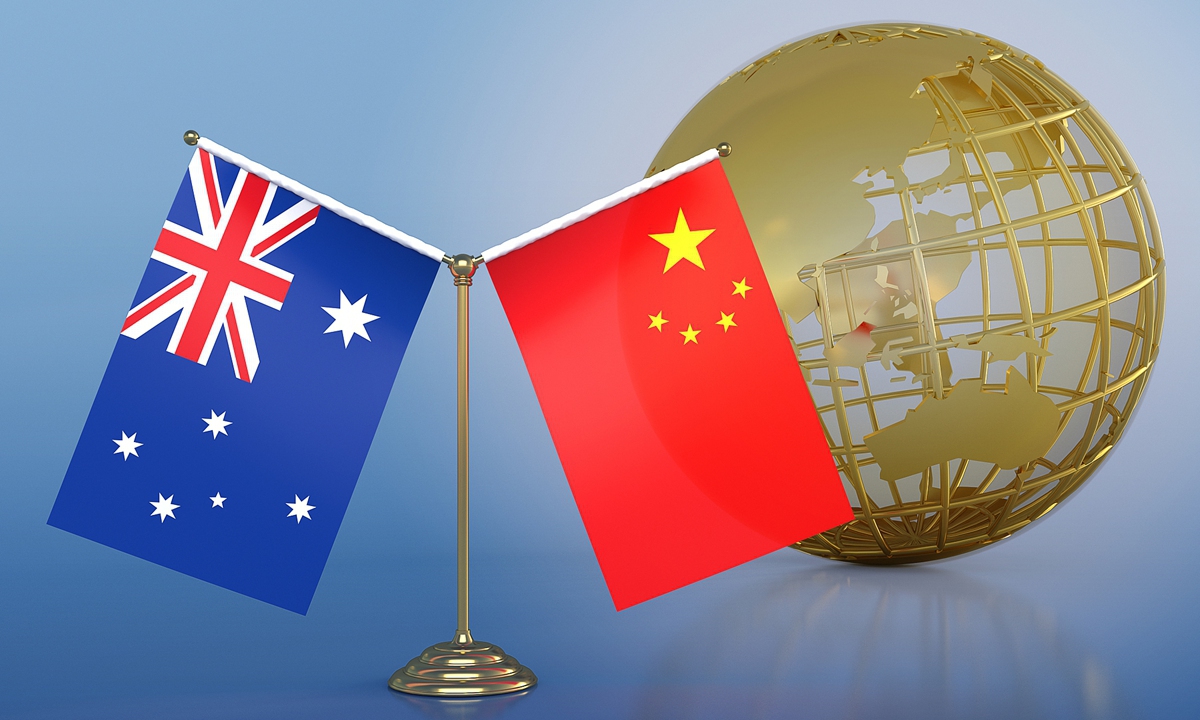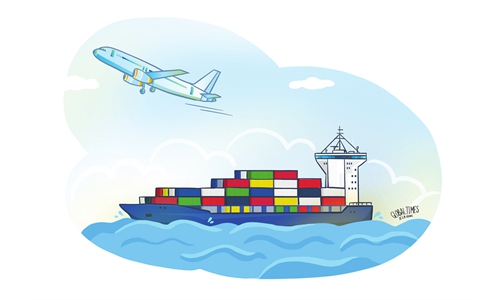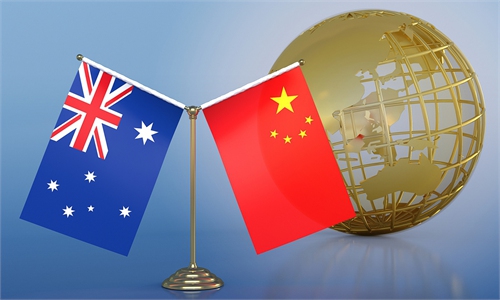
China Australia Photo: CFP
Despite the challenges posed by so-called security issues in recent years, pragmatic cooperation has always been essential for the continued advance of China-Australia relations.
In a Bloomberg Television interview on Saturday, Australian Deputy Prime Minister Richard Marles said that Australia still has "security anxieties" in its relationship with China despite the warming trade ties between the two countries.
His remarks underscore the intricate considerations in Australia's relationship with China, which stem from the intertwined nature of trade collaboration and security concerns.
On the one hand, China is Australia's largest trading partner, and economic and trade cooperation is crucial to both sides. With the resumption of a series of official exchanges between China and Australia, efforts have been made in resolving some of the uncertainties affecting bilateral economic and trade issues, and promoting the improvement of economic and trade relations.
The interactions not only help enhance mutual understanding, but also help resolve some long-standing trade disputes. For instance, five more major Australian beef exporters have been granted permits to resume exports to China, according to media reports.
This is undoubtedly another positive development in China-Australia trade relations. Previously, China's Ministry of Commerce announced a decision to cancel anti-dumping and anti-subsidy tariffs levied on Australian wine. Also, exports of Australian coal, barley and cotton to China gradually gained momentum last year.
On the other hand, it is undeniable that the security issue has always been the biggest negative factor testing China-Australia economic and trade relations. Australia often perceives China as a threat in terms of security, despite lacking concrete evidence or justification for this stance. This perception not only deepens mistrust between the two countries but also hinders economic cooperation. An example of this is the Australian government's decision to ban Huawei from participating in the development of 5G networks.
To a certain extent, Australia's vigilance may be attributed to the divergent political systems, values and ideologies of Australia and China. But more importantly, Australia's China policy is significantly influenced by its alliances, particularly with the US.
Washington's move to label China as a strategic competitor undoubtedly plays a crucial role in shaping Australia's approach to China.
It should be pointed out that the so-called "security anxieties" in Australia do not stem from the actual threat posed by China to Australia, but rather from the anxiety the US has created in its attempt to make Australia a strategic pawn in containing China.
Australia's security concerns in its economic exchanges with China have been generalized and politicized, far beyond normal national security concerns. This tendency of generalizing security, particularly creating tensions targeting China, is a significant barrier to the progress of China-Australia economic and trade cooperation.
Australia should understand that security issues should not be an obstacle to cooperation. On the contrary, increased collaboration can enhance mutual understanding and reduce misunderstanding and suspicion, creating more favorable conditions for resolving disagreements and trade disputes.
Australia needs to turn this anxiety into an impetus for pragmatic cooperation with China. There is vast potential for collaboration in various areas including the economy, science, technology and education. However, unlocking this potential requires not only political wisdom from both governments but also a more holistic and unbiased understanding of China-Australia relations from Australian politicians.



